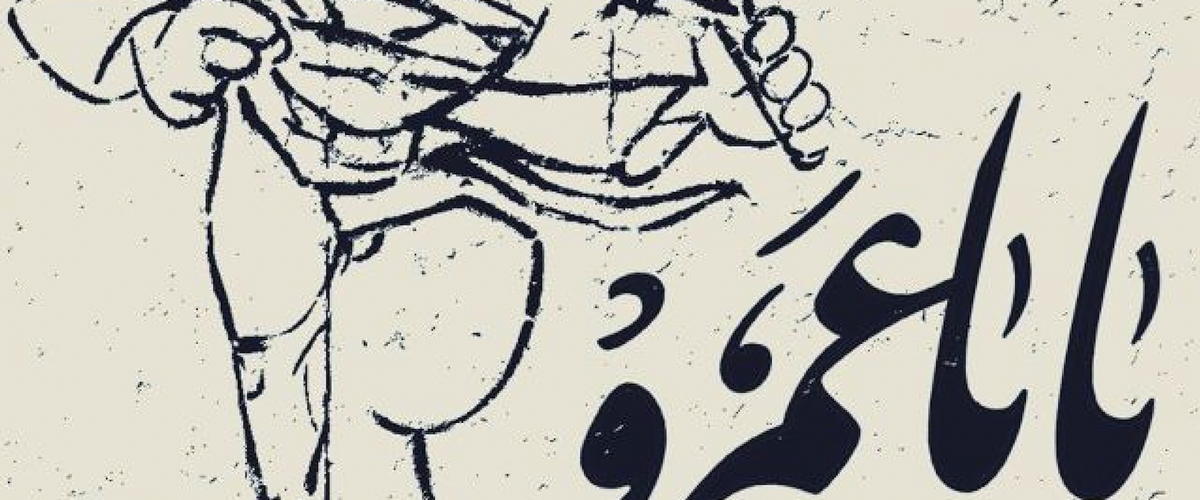Click on cover to read our writeup:
Jean Baudrillard, The Gulf War Did Not Take Place
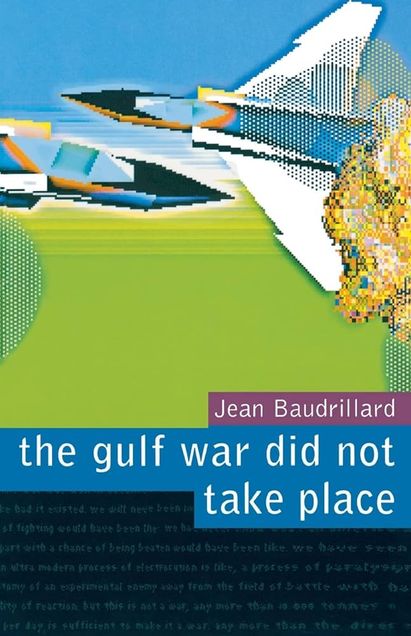 Originally published between January and March 1991, Jean Baudrillard’s book The Gulf War Did Not Take Place is a collection of three short essays analyzing the 1991 Gulf War before it occurred, while it was happening, and afterwards.
Originally published between January and March 1991, Jean Baudrillard’s book The Gulf War Did Not Take Place is a collection of three short essays analyzing the 1991 Gulf War before it occurred, while it was happening, and afterwards.
Baudrillard argues that during the Gulf “war”, virtual reality technology was used as a way to deliberately blend reality and virtual cinema. As a result of this, what occurred between Iraq and America wasn’t a war. What was presented to the public, through television, was rather a fabrication of reality. Additionally, he critiques the idea of information. He argues that informational events are the object of endless speculation, as the range of interpretation is so large the meaning of information has been defeated, ultimately making us “stupid”. He argues that we are hostages of media intoxication and are slaves to information. Baudrillard provides a tasteful and insightful philosophical analysis of how the Gulf war was perceived as a result of advanced technology, ultimately arguing that it never happened to begin with.
Through Baudrillard’s humorous metaphors and witty writing style, he analyzes how we have all been deceived into thinking what occurred between Iraq and America was a war. He argues that we were actually watching a fake cinema or film, while under the impression that we were witnessing the real battle. Baudrillard’s analysis of the Gulf war can be applied when perceiving any modern-day war. However, it contrasts with the experiences of the 1991 war presented in, for instance, Muhsin al-Ramli’s novel The President’s Gardens. -Noora Lahoud ’25
Kate McLoughlin, “War and Words” 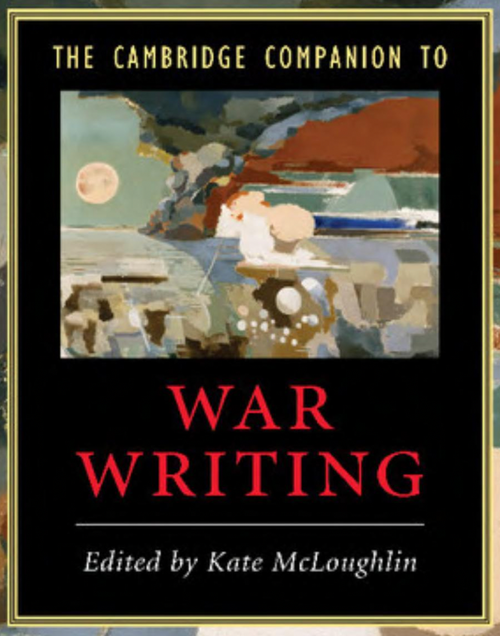
Kate McLoughlin’s essay “War and Words,” part of her edited collection Cambridge Companion to War Writing published in 2009, discusses why it’s difficult to use words, especially literature, to describe wars.
McLoughlin argues that there are both benefits and drawbacks to writing about war. Writing about war can be used for documentation purposes, can be cathartic, and can potentially serve as a coping mechanism allowing one to mourn, weep, and grieve. On the other hand, there are drawbacks to writing about war. She draws parallels between the absence of a war literature and the moment of silence that one might take as a form of grieving. Moreover, noticing that someone is unable to find words to describe their feelings might be more effective than reading a watered-down version of the experience. This essay reminds the reader that literature about wars is more than words on a page, but refers to real lived experiences that deserve our empathy. Helping to humanize war literature during the digital age, this essay goes well with course readings such as The Beekeeper and The Corpse Exhibition. -Noora Lahoud ’25
Kay Dickinson, “The State of Labor and Labor for the State: Syrian and Egyptian Cinema beyond the 2011 Uprisings”
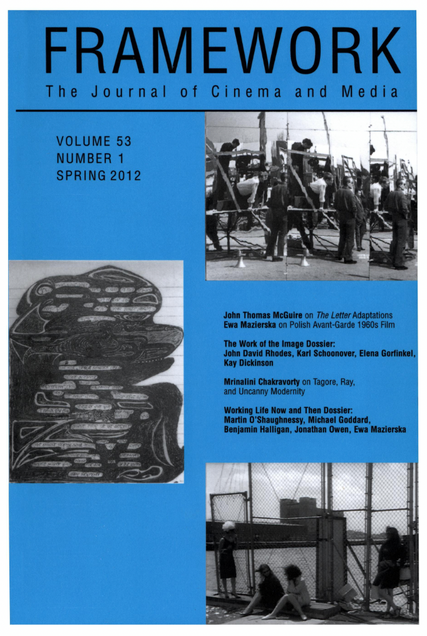 Published in 2012, Kay Dickinson’s essay “The State of Labor and Labor for the State: Syrian and Egyptian Cinema beyond the 2011 Uprisings” directly compares the history of the film industry in Syria and Egypt, revealing the different labor policies, national movie industries, and contributions to the Arab Spring.
Published in 2012, Kay Dickinson’s essay “The State of Labor and Labor for the State: Syrian and Egyptian Cinema beyond the 2011 Uprisings” directly compares the history of the film industry in Syria and Egypt, revealing the different labor policies, national movie industries, and contributions to the Arab Spring.
Dickinson assesses the history of the film industry through an economic perspective, considering unemployment, the negative effects of neoliberal policies, and how international financial institutions, such as the IMF, overlook class struggle. Dickinson offers strong criticism of neoliberalism, rejecting the notion that a ‘one size fits all’ economic solution can work, and discusses its detrimental effects in the global south. Dickinson compares Syria and Egypt due to the countries’ socialist history, and throughout the essay highlights how cinema should be considered a cultural tool, rather than a means for monetary gain. Dickinson heavily critiques capitalism and the private sector in relation to cinema, arguing that the capitalistic model hinders the preservation of culture and distribution of films within the cinema industry. This reading could be good for students who want a deep dive into Arabic film industries. -Noora Lahoud ’25
David LaRocca, The Philosophy of War Films
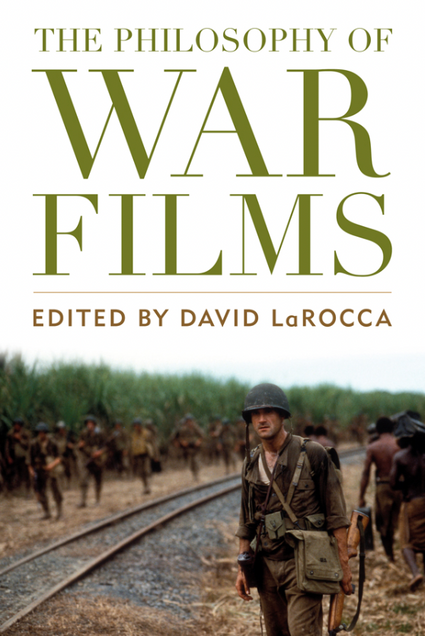
David LaRocca’s The Philosophy of War Films published in 2014 analyzes war films through a philosophical lens.
LaRocca argues that people tend to take what is represented in war films at face value, rather than thinking critically about what is being portrayed, despite cinema’s artificial nature. For instance, he discusses what war films represent as a result of technological advancements in the film industry through CGI and green screens. LaRocca makes a distinct connection between the gun and the camera and their presence on the battlefield. He also draws parallels between love and war, arguing that one implies the other: war implies love for one’s nation, family, identity, and kin. LaRocca highlights the technological advancements made during the Iraq war, which allowed for soldiers to take their own cameras and capture what happened on the ground, with no need for special effects. These technological advancements allow for the audience to see different perspectives of war, and understand the ecosystem of war better, allowing the viewer to potentially be more empathetic. -Noora Lahoud ’25
Lina Khatib, “Transforming the Media: From Tool of the Rulers to Tool of Empowerment”
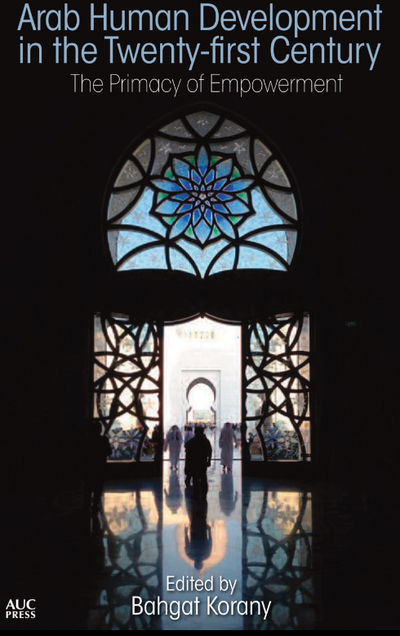
A chapter in the book Arab Human Development in the Twenty-First Century published in 2014, the essay “Transforming the Media” by film scholar Lina Khatib discusses how social media has been an important tool in revolutions since the Arab Spring.
Through quantitative analysis, Khatib argues that social media has allowed anyone to share news, spread awareness, educate their peers, and organize in the face of government repression. The shift to people getting their news from social media, rather than relying on private satellite channels, has led to the liberation of the media and contributed to empowering Arabs all throughout the Arab World. –Noora Lahoud ’25
Kamran Rastegar – Surviving Images, Cinema, War, and Cultural Memory in the Middle East
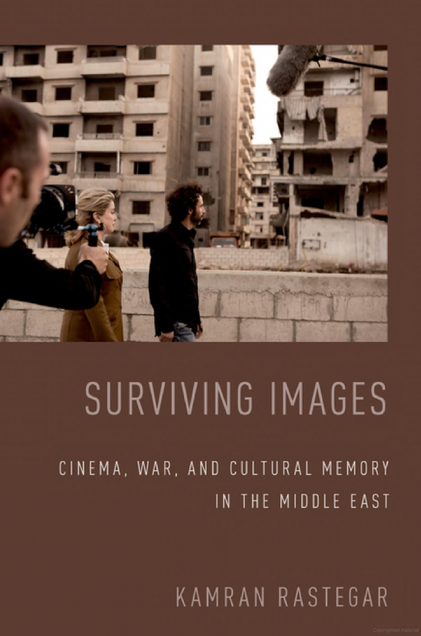 Kamran Rastegar’s book Surviving Images, Cinema, War, and Cultural Memory in the Middle East provides a critical perspective on the history of cinema in the Middle East and North Africa.
Kamran Rastegar’s book Surviving Images, Cinema, War, and Cultural Memory in the Middle East provides a critical perspective on the history of cinema in the Middle East and North Africa.
Published in 2015, this text discusses the connection between social trauma, cultural memory, and cinema. Rastegar argues that since the 19th century, cinema has always been a tool for colonialists and imperialists to put forth allusions regarding history, as a means to push their particular colonial agenda and promote the empire. Rastegar also argues that in both American and British colonial films, ideas of racial superiority are built in. These films were usually only told through the eyes of the colonists, effectively ignoring the perspective of the colonized. This erasure not only glorifies colonialism, but attempts to create a false cultural memory among the community, making it more difficult to preserve national identity. Rastegar analyzes this phenomenon through three historical periods: the colonial age, the independence movement, and the postcolonial period. In counterpoint, he analyzes case studies of anticolonial cinema in Algeria, Egypt, Tunisia, Palestine, Iran, Lebanon and Israel. -Noora Lahoud ’25
Mustapha Akkad, Lion of the Desert

Lion of the Desert is a historical film that depicts Libyans’ struggle against colonization.
Italy invaded Libya in 1911 with the intention of expanding its territories with no major purpose other than for its own glory and selfishness. The conflict escalated as the Italian military was faced with fierce resistance from Libya’s Bedouin population, particularly Omar Mukhtar, a Bedouin teacher who became a symbol of the Libyan people. It started as a local uprising and slowly turned into a long and brutal war that lasted more than twenty years. Omar Mukhtar, the main character who was known as the “Lion of the Desert,” led his people in the fight against Italian forces, despite their overwhelming technology. After Mussolini’s rise to power in 1922, Italian forces stepped up their efforts to conquer Libyan land and suppress the country by using violent strategies, such as regular executions, concentration camps and bombings by airstrikes. The film was directed by Moustapha Akkad who focuses on Mukhtar’s leadership and devotion to his people in the movie. –Abdulla Almarar
Skye Fitzgerald, Hunger Ward

Hunger Ward is a 2020 war documentary directed by Skye Fitzgerald who brings to light the frontline of the famine in Yemen and the struggles of healthcare workers to save the lives of innocent children.
The film follows two healthcare workers, Dr. Aida Alsadeeq, supervisor of the pediatric malnutrition ward at Sadaqa hospital and Nurse Mekkia Mahdi who manages the Aslam clinic. Both these heroes try to save the lives of children struck by famine in the largest network of rural malnutrition clinics in Yemen.This documentary primarily discusses the casualties caused by war in Yemen, and does not explicitly talk about the causes of the war or its history. This documentary brings to light the idea that food can be used as a political weapon, capable of wiping out an entire country. -Rena Nurhussien
Gillo Pontecorvo, Battle of Algiers

Nearly six decades after its release in 1965, Gillo Pontecorvo’s Battle of Algiers remains an iconic remembrance of the power that people’s hearts and minds hold in any revolution.
Showcasing the 1954 revolutionary struggles between the Algerian National Liberation Front (FLN) against French colonials from the perspective of the revolutionist, Yacef Saadi, while devoting great focus to the military strategies deployed by both opposition sides and providing a deep insight of the human experience in the process. The Battle of Algiers quickly achieved worldwide recognition whose depiction of guerrilla tactics were examined by numerous organisations such as the Black Panthers and even screened in the Pentagon during the Iraq war in 2003.
The film portrays all parties involved in a colonial war. The home country, its rebels and civilians, as well as the colonial force and their civilians, all get screen time. We see Algerian children scampering around in the streets, and French children eating ice cream at French cafes. Innocent Algerians are tortured, and French civilians get crushed under rubble in bombings. This perspective is often not seen in war movies, which often focus on either a clearcut “good versus evil” story between rebels and colonists, or a specific group in a war such as children or women. Everyone gets screen time, which means that the impacts of war can be seen on everybody. It makes the viewers question the tactics used by both sides, and how far war can go in punishing the innocent. -Giovanni Garbuio & Levi Chen
